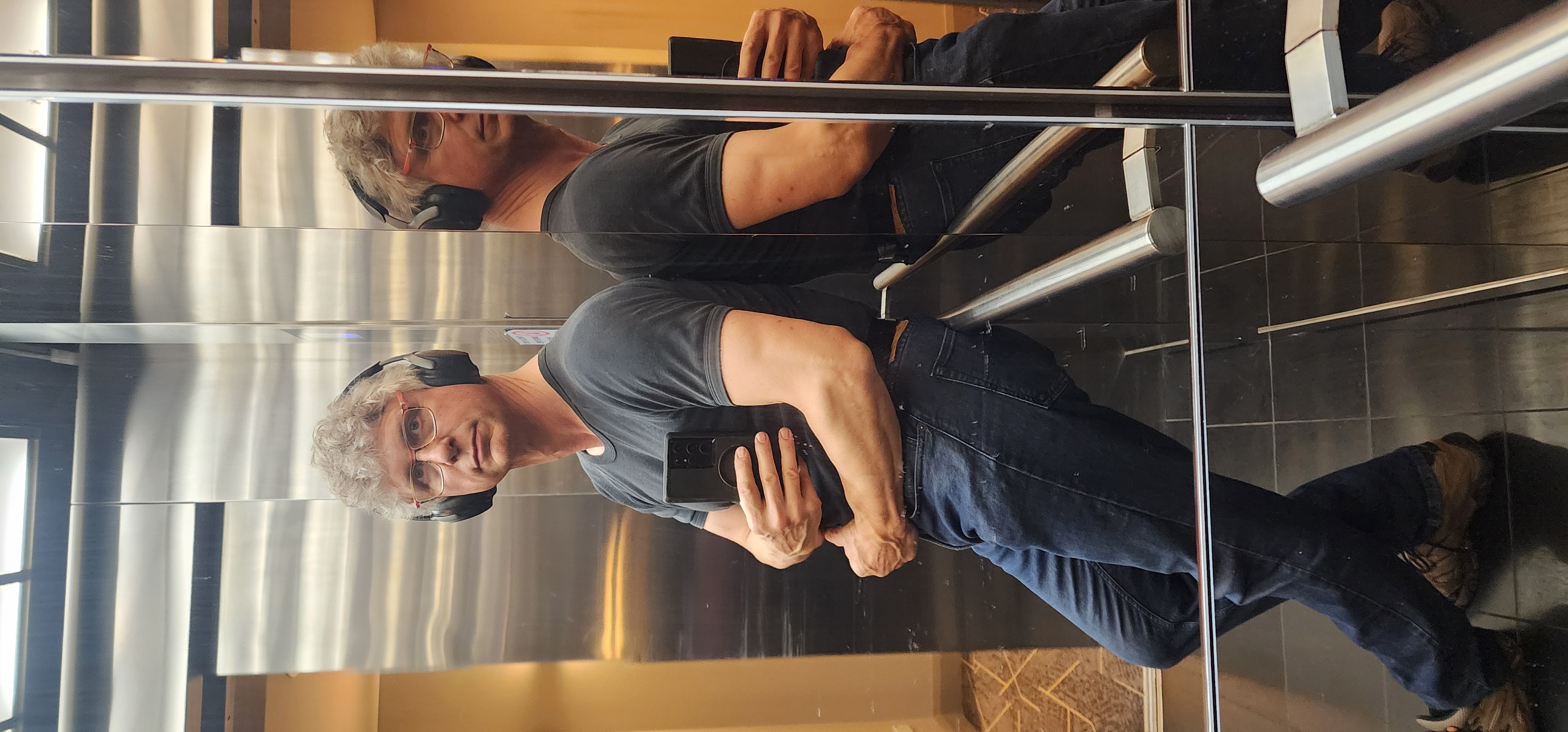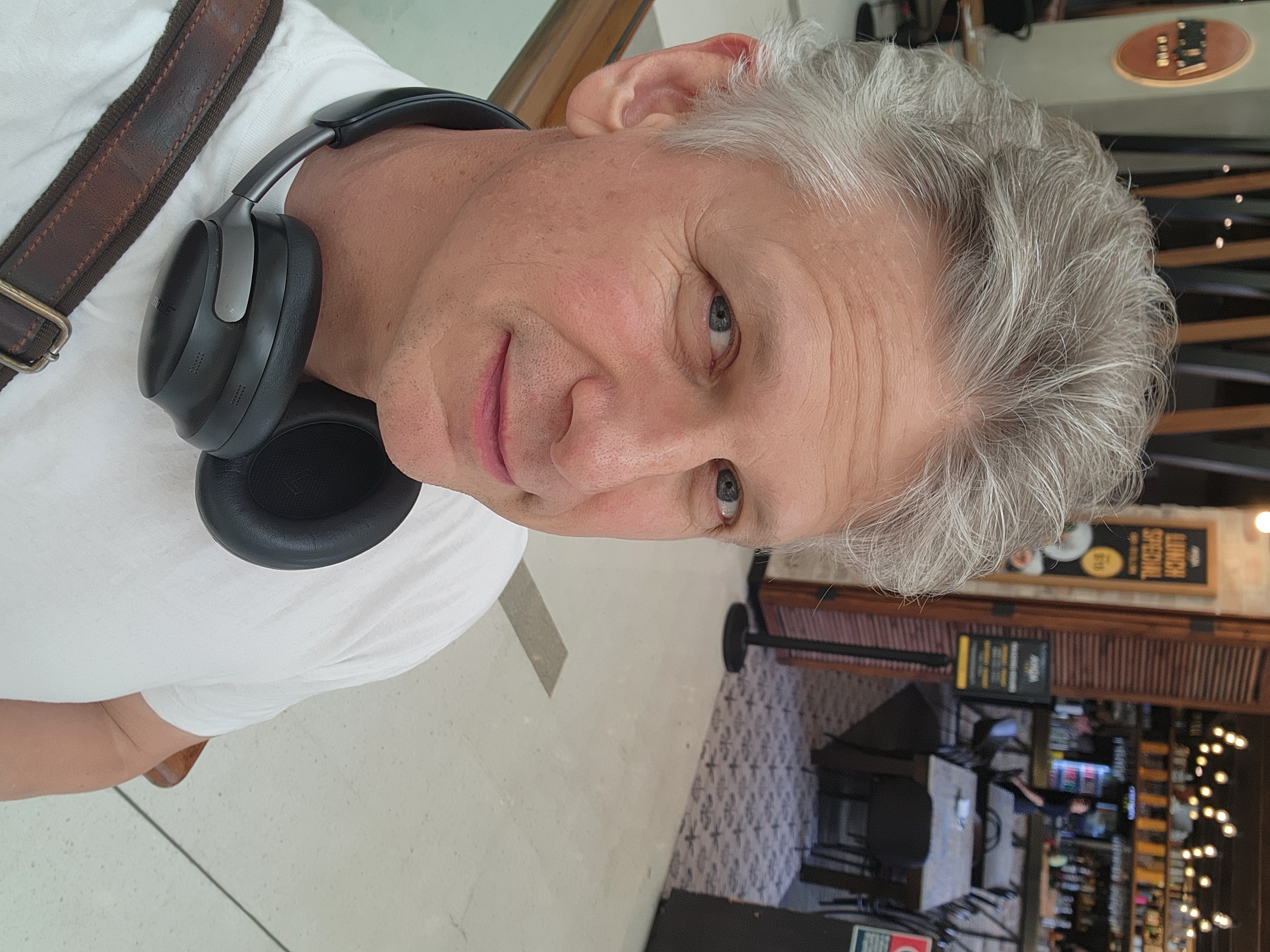I love photography with mirrors and the polished stainless steel of a lift can make for some trippy kaleidoscopic type of images…

John

Thank you S for sharing this with me!
https://secretmelbourne.com/museum-of-desire/
Are you ready to indulge your curiosity? The Museum Of Desire is making its global debut in Melbourne this year, and we can guarantee it’s unlike anything else you’ve ever seen. Imagine stepping into a space where the sex is art, art is sexy, and curiosity is always encouraged. This isn’t just an exhibit—it’s a fully immersive, boundary-breaking experience where every shadow whispers, every space invites, and every art piece flirts back. Intrigued? Well, it’s time to get your tickets, because the Museum of Desire is about to become the hottest event in town.

And I have to say that I’m intrigued! If you’re in Melbourne and are looking for some unconventional fun then I think this might be just the thing!
Oh – if you have been to the Museum of Desire then I’d love to hear about it – drop a comment below!
John
This has been a funny sort of a year. Many ups and downs, some wonderful travel, and now it’s coming to a close. Through it all I have had the immense pleasure of seeing you my clients.
I have worked in this industry for over fourteen years as it continues to evolve and grow. I am proud to be a part of it and to have the opportunity to provide my services.
One of my clients with a disability messaged me just yesterday to remind me that I have been working with her now for thirteen years!
People sometimes ask me when I am going to retire because “you can’t do this forever…”. My answer is always “I’ll keep working as a male escort for as long as my clients want to see me.”
Why? Because this is the best job in the world and one of the most rewarding things that I have ever done in my life. I get to meet so many wonderful people. Help them to enjoy their sexuality, sometimes help them grow as people, explore things that they might never have had an opportunity to otherwise.
Sometimes I’m there to help them get through a difficult period in their life. Be it a life-changing illness, divorce, or personal loss.
Whatever the situation, it is a privilege that I am trusted to share that journey.
So thank you to everyone I have met, or who has continued to see me this year. Your support is greatly appreciated.
I will be taking a few days off over the Christmas period, but please feel free to drop me a line any time if you would like to make a booking.
I hope everyone has a fun and safe break.
John
Cuddling and its benefits are all too often overlooked and ignored, especially in long term relationships. I think that we should make more effort to cuddle more often.
Part 1 of 3
Part 2 of 3
PART 3 OF 3
John
If you are here reading these testimonials to help you decide whether to go ahead and make a booking with John, then don’t hesitate any longer, seeing John will be one of the best experiences of your life and you will not regret it.
John’s website is an accurate representation of who he is and will give you a good idea of what to expect when you meet him.
John is non-judgemental, kind, thoughtful and extremely talented at what he does. Even if you don’t know yourself exactly what you would like, trust that John will work it out. He is an excellent conversationalist and is knowledgeable about a wide range of topics. Don’t worry if you are feeling nervous or shy, he will make sure there are no awkward silences. John excites the mind as well as the body!
From a simple chat, a movie, a cuddle or sensual massage to spectacular sex, John can do it all. Difficulty reaching orgasm? No problem, John will work out what you need even if you are not sure. I am the first to admit that reaching orgasm is not easy for me, but John took the time to figure it out. Want to explore ‘kinks’ then he will provide a safe place to do that.
From my very first time seeing John, he has made me feel safe, heard, seen, sexy and desired, all things I had been missing for some time. As well as the mind blowing sex, he provided the intimacy that had been absent from my life for far too long, the kissing, the cuddles, simple touch, holding my hand. I was incredibly nervous the first time, so much so, that I felt physically sick, but John still manged to relax me and enabled an evening of fun and sexual fulfillment that far exceeded my expectations. Like most women I lack body confidence, but with John many of those negative thoughts disappear.
I have continued to see John several times since and have also been fortunate to be able to spend a couple of days away with him and during this time experienced his excellent culinary skills, in addition to his other talents :) He is the ideal travel companion to explore new places with and provides a stress free experience. Time spent with John is always extremely pleasurable and completely satisfying.
If you have any doubts, concerns or questions make sure to reach out to John, he replies promptly and will allay any of your fears. Go ahead, take the first step, send him a text or email, it will be an incredible experience :)
S, Melbourne
The Commonwealth Bank here in Australia wants to charge certain customers $3.00 to withdraw cash from their bank accounts under certain circumstances…
“the account also includes an “assisted withdrawal fee”, where customers taking money out at bank branches, post offices or by phone are charged $3 per withdrawal”
Banks slapping exorbitant fees on transactions is nothing new, but this particular move just highlights how banks hatecash and don’t want to have to deal with it.
I’ve written before (in 2016) about how important cash is to sex workers and our clients:
https://john-oh-escort.com/2016/12/14/why-my-clients-need-cash/
And while the situation has improved here in Australia with our OSKO system that enables effectively instant transfers, it’s worth saying it again – cash is important to a society and especially to sex workers and our clients. That fact has only been emphasised by the 12 hour network outage experienced by Optus (an Australian telecoms provider) in early November of 2023. That outage was cause by a software error that took down Optus’ routers and prevented any internet traffic and phone calls on their network.
In that time, if you were an Optus customer or your business relied on Optus services to take and make payments then you were out of luck. And if you had no cash, then you could literally have been left stranded.
Cash is difficult and expensive for banks to handle. Governments hate it because it makes it harder for them to collect taxes. But cash also makes our civilisation more robust. It gives us a backup method of paying for and being paid when the electronic channels don’t work – be that because of societal stigma, software failure, or natural disaster.
Cash – always works.
We allow big businesses and our government to do away with cash at our peril. And believe me when I say that the will do so if they possibly can. So vote for cash – just take a bit out of the ATM every week to remind the banks that we still want and need cash (but remember to check for exorbitant withdrawal fees first!)
John
Well, it’s been a few years now of keeping my hair “long”.
I like it, most people I meet seem to like it that way too – but I’m really sorry, it’s time to go! The summer heat is really starting to bite and it’s just way too hot with longer curly hair.
When I’m not in Sydney working as a male escort, I’m down south helping people build dreams and fix up their properties. In short I spend a lot of time outdoors and summer is prime time to be doing that work. That also means I’m covered up – long pants, long sleeve shirt, and most importantly and wide brimmed hat.
A thick top of curly hair added to all of that means that hot days are really hard.
So it’s time for a hair cut!

John
I made a short film way back in 2016 of a visit to the beach – titled A Grand Day Out.
With the warm weather here I was thinking about the beach and adventures…
If you need a break after this long strange years and would like to take some time of with me for company, then drop me a line.
We can go to the beach, or a walk in the Blue Mountains (The Grand Canyon hike is excellent), or just a cafe with good food, cold drinks, and a view…
What’s your idea of a grand day out?
WARNING
this short film contains nudity and is NOT SAFE FOR WORK
John